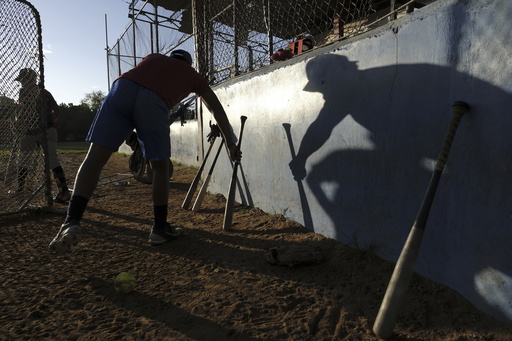
Major League Baseball (MLB) believes that implementing an international draft could significantly reduce corruption in the signing of players from Latin American countries, a proposition that has faced longstanding opposition from the players’ association.
MLB commissioner Rob Manfred emphasized that the draft would enhance transparency, making it harder to covertly arrange deals since the draft order is unknown to teams. “This is not merely about numbers or finances; it revolves around creating a transparent process to eliminate violations associated with the signing market,” he explained.
Currently, MLB franchises often secure verbal agreements with aspiring players in countries like the Dominican Republic and Venezuela before they turn 16, often negotiating with players as young as 13 or 14. For players outside the U.S., Puerto Rico, and Canada, the international signing period opened in January for those born between September 1, 2007, and August 31, 2008.
Concerns persist regarding exploitative practices, including loan sharking, while MLB has uncovered instances of age fraud among signed players. An example includes a player who was initially believed to be 14 years old at the time of an agreement with the San Diego Padres but was later revealed to be 19. “We are investing significant resources—tens of millions of dollars—to police wrongdoing,” Manfred stated. “While we do manage to catch some violations, there are likely many more that remain undetected.”
Certain officials in the Dominican Republic support the idea of an international draft. However, the introduction of such a draft requires cooperation and agreement from major league players, as the current pathways into MLB are governed by collective bargaining agreements.
During discussions associated with the 2021-22 collective bargaining agreement (CBA), MLB put forth a proposal for a 20-round draft with fixed signing bonuses set to start in 2024. The proposal included a guarantee of $191 million and anticipated a $4 million allocation for undrafted players, but players responded with their draft plan that called for a $260 million guarantee and additional terms like increased bonuses for undrafted players.
The players’ union ultimately rejected MLB’s draft proposal in July 2022. Union head Tony Clark articulated their stance, asserting, “We do not believe an international draft is needed.” He expressed that their proposed draft framework aimed to ensure players receive more equitable value compared to the existing structure.
Without the institution of a draft, teams allocated $181 million for international amateur signings in 2024, slightly under MLB’s guarantee proposal, and $199 million in the current year while projections suggested MLB’s guarantee would rise to $208 million. A 2023 MLB study highlighted that only 6% of international amateurs who signed contracts from 2012 to 2016 made it to the major leagues, with merely 30% of those who signed for seven-figure bonuses reaching the big leagues.
Clark challenges the necessity of an international draft to resolve issues in Latin America, asserting that corruption largely stems from clubs and scouts making early and enticing verbal agreements with young prospects. “You have clubs approaching 12- or 13-year-olds, eager to secure them before they are eligible to sign. This creates promises based on verbal agreements that are fragile and hard to enforce,” he pointed out.
The topic of an international draft is just one of many issues being addressed in the ongoing negotiations between MLB and the players’ association. A pivotal aspect of the discussions is how MLB connects international amateur spending with the regulations surrounding major league free agents.
When major league players become free agents, they often receive qualifying offers, which tie their potential new contracts to the forfeiture of one or more draft picks or international signing bonuses for the teams who sign them. This system has resulted in restricted bidding for older players due to the financial implications. Scott Boras, a prominent agent, highlighted the market dynamics, noting that teams are often reluctant to lose draft picks and international funds, consequently diminishing free agent values for older players.
Three years ago, MLB proposed to abolish the qualifying offer system during negotiations for the international draft; however, it did not sway the players’ perspective. Still, it remains likely to resurface in discussions for the next collective bargaining agreement.

